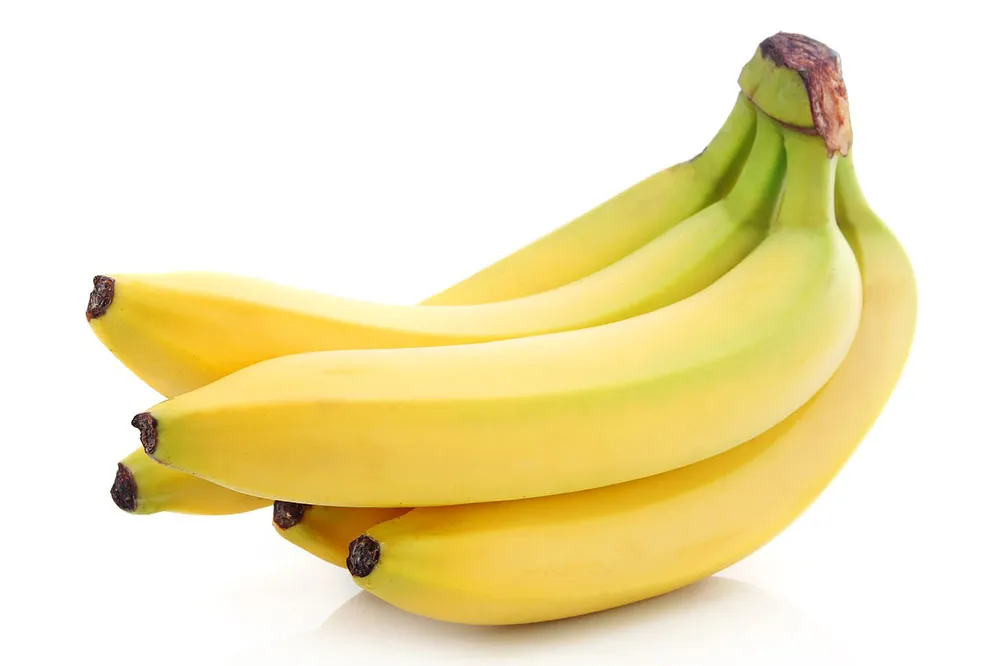
Overview
| Name | Value | Level |
| Glycemic index | 48 | |
| Glycemic load | 10.1 |
Glycemic Index of Banana
The glycemic index (GI) of a banana can vary depending on factors such as ripeness, variety, and size. Generally, the riper the banana, the higher its GI.
On average, a medium-sized banana with a GI of around 48 is considered to have a low glycemic index. However, the GI of a ripe banana can be higher, reaching up to 85, which is considered high on the glycemic index scale.
It’s important to note that the glycemic index of a food is not the only factor to consider when it comes to managing blood sugar levels. The glycemic load (GL) of a food takes into account both the GI and the serving size, providing a more accurate picture of how a food will affect blood sugar levels.
Glycemic Load of Banana
The glycemic load per 100 grams of a banana is around 10.1, which is considered moderate. However, while bananas may have a moderate to high glycemic index, they still provide a relatively low glycemic load per serving (80 grams). Additionally, bananas are a good source of fiber, vitamins, and minerals, making them a healthy and nutritious food choice for most people.
Banana Nutrition Facts (100g)
| Calories (kcal) | 88 |
| Carbohydrates (g) | 21.0 |
| Proteins (g) | 1.5 |
| Fats (g) | 0.5 |
100 grams of a banana contain 88 kcal (368 kJ), 1.5 grams of proteins, 21.0 grams of carbohydrates, and 0.5 grams of fats.
Banana Nutrition Facts:
One large-sized banana (118 grams) contains:
Calories: 105
Carbohydrates: 27 grams
Fiber: 3 grams
Protein: 1 gram
Fat: 0.4 grams
Vitamin B6: 0.5 mg (33% of the RDI)
Vitamin C: 9 mg (11% of the RDI)
Potassium: 450 mg (12% of the RDI)
Magnesium: 34 mg (8% of the RDI)
Copper: 0.1 mg (7% of the RDI)
Bananas are also a rich source of antioxidants, including dopamine and catechins, which can help protect against oxidative stress and inflammation.
Health Benefits:
Promotes Heart Health:
Bananas are an excellent source of potassium, a mineral that is crucial for maintaining heart health. Potassium helps regulate blood pressure and prevents the risk of heart disease.
Aids Digestion:
Bananas are a rich source of dietary fiber, which promotes digestive health by regulating bowel movements and preventing constipation. The soluble fiber in bananas can also help reduce the risk of gastrointestinal problems like ulcers and gastric reflux.
Boosts Energy Levels:
Bananas are a rich source of carbohydrates, which provide the body with energy. They also contain vitamin B6, which helps convert food into energy and supports healthy brain function.
Supports Immune System:
Bananas are rich in vitamin C, an antioxidant that supports the immune system by protecting the body against free radicals and preventing oxidative stress.
Regulates Blood Sugar Levels:
Bananas have a low glycemic index, which means they release sugar into the bloodstream slowly. This helps regulate blood sugar levels and prevent spikes, making them a great option for people with diabetes.
Promotes Healthy Skin:
Bananas contain vitamin C, which is essential for the production of collagen, a protein that is crucial for healthy skin. They also contain antioxidants that protect the skin from damage caused by free radicals.
Supports Kidney Health:
Potassium in bananas helps regulate fluid balance in the body, which is crucial for maintaining kidney health. Studies have shown that regular consumption of bananas can help reduce the risk of kidney disease.
Reduces Inflammation:
Bananas are a rich source of antioxidants, including dopamine and catechins, which can help reduce inflammation in the body. This can help prevent chronic diseases like arthritis and cancer.
How to Incorporate Bananas into Your Diet:
Bananas are a versatile fruit that can be incorporated into your diet in several ways. Here are a few ideas:
Eat them as a snack: Bananas are a great snack option and can be eaten on their own or paired with nut butter or yogurt.
Use them in smoothies: Bananas add natural sweetness to smoothies and can be blended with other fruits, greens, and nut milk.
Add them to baked goods: Bananas can be mashed and added to muffins, pancakes, and bread to add natural sweetness and moisture.
Use them in savory dishes: Bananas can be added to savory dishes like curries and stir-fries for a sweet and tangy flavor.
Conclusion:
Bananas are a nutritious and versatile fruit that can provide several health benefits when consumed regularly. They are rich in essential nutrients like vitamins, minerals, and dietary fiber, and are known to promote heart health, aid digestion, boost energy levels, support the immune system, regulate blood sugar levels, promote healthy skin, support kidney health, and reduce inflammation.
Bananas are also a convenient and easy-to-incorporate fruit into your diet, making them an excellent choice for a healthy and balanced lifestyle. So, make sure to include bananas in your daily diet and enjoy their delicious flavor and health benefits!


